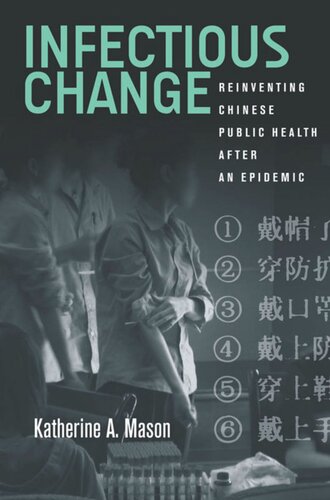

Most ebook files are in PDF format, so you can easily read them using various software such as Foxit Reader or directly on the Google Chrome browser.
Some ebook files are released by publishers in other formats such as .awz, .mobi, .epub, .fb2, etc. You may need to install specific software to read these formats on mobile/PC, such as Calibre.
Please read the tutorial at this link: https://ebookbell.com/faq
We offer FREE conversion to the popular formats you request; however, this may take some time. Therefore, right after payment, please email us, and we will try to provide the service as quickly as possible.
For some exceptional file formats or broken links (if any), please refrain from opening any disputes. Instead, email us first, and we will try to assist within a maximum of 6 hours.
EbookBell Team

5.0
30 reviewsIn February 2003, a Chinese physician crossed the border between mainland China and Hong Kong, spreading Severe Acute Respiratory Syndrome (SARS)—a novel flu-like virus—to over a dozen international hotel guests. SARS went on to kill about 800 people and sicken 8,000 worldwide. By the time it disappeared in July 2003 the Chinese public health system, once famous for its grassroots, low-technology approach, was transformed into a globally-oriented, research-based, scientific endeavor.
In Infectious Change, Katherine A. Mason investigates local Chinese public health institutions in Southeastern China, examining how the outbreak of SARS re-imagined public health as a professionalized, biomedicalized, and technological machine—one that frequently failed to serve the Chinese people. Mason grapples with how public health in China was reinvented into a prestigious profession in which global recognition took precedent over service to vulnerable local communities. This book lays bare the common elements of a global pandemic that too often get overlooked, all of which are being thrown into sharp relief during the present COVID-19 outbreak: blame of "exotic" customs from the country of origin and the poor bearing the most severe consequences. Mason's argument resonates profoundly with our current crisis, making the case that we can only consider ourselves truly prepared for the next crisis once public health policies, and social welfare more generally, are made more inclusive.